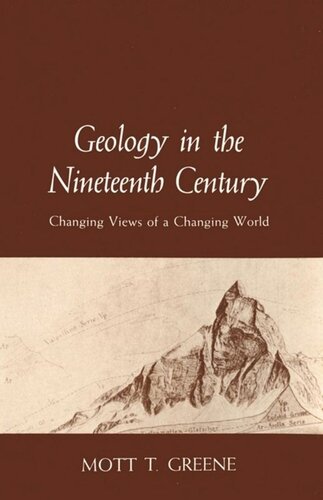

Most ebook files are in PDF format, so you can easily read them using various software such as Foxit Reader or directly on the Google Chrome browser.
Some ebook files are released by publishers in other formats such as .awz, .mobi, .epub, .fb2, etc. You may need to install specific software to read these formats on mobile/PC, such as Calibre.
Please read the tutorial at this link: https://ebookbell.com/faq
We offer FREE conversion to the popular formats you request; however, this may take some time. Therefore, right after payment, please email us, and we will try to provide the service as quickly as possible.
For some exceptional file formats or broken links (if any), please refrain from opening any disputes. Instead, email us first, and we will try to assist within a maximum of 6 hours.
EbookBell Team

4.8
94 reviewsIn this clear and comprehensive introduction to developments in geological theory during the nineteenth century, Mott T. Greene asserts that the standard accounts of nineteenth-century geology, which dwell on the work of Anglo-American scientists, have obscured the important contributions of Continental geologists; he balances this traditional emphasis with a close study of the innovations of the French, German, Austro-Hungarian, and Swiss geologists whose comprehensive theory of earth history actually dominated geological thought of the time.
Greene's account of the Continental scientists places the history of geology in a new light: it demonstrates that scientific interest in the late nineteenth century shifted from uniform and steady processes to periodic and cyclic events—rather than the other way around, as the Anglo-American view has represented it. He also puts continental drift theory in its context, showing that it was not a revolutionary idea but one that emerged naturally from the Continental geologists' foremost subject of study-the origin of mountains, oceans, and continents.
A careful inquiry into the nature of geology as a field poised between natural history and physical science, Geology in the Nineteenth Century will interest students and scholars of geology, geophysics, and geography as well as intellectual historians and historians of science.